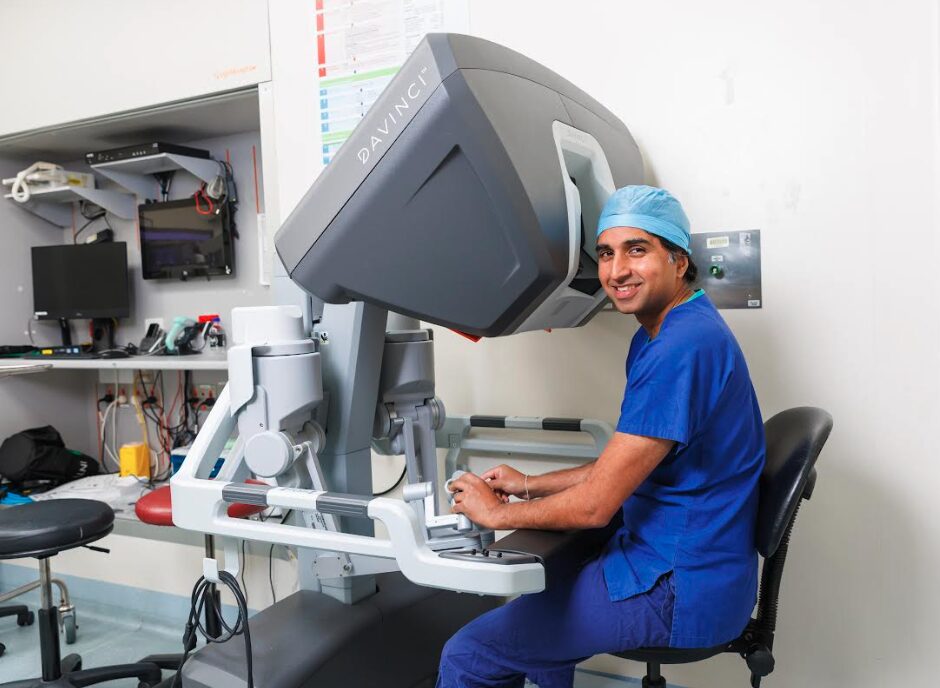Mater Hospital specialists are leading a robotic revolution in pancreatic cancer surgery which they say is saving lives and improving their patients’ outcomes after major surgery.
Pancreatic cancer is the third biggest cancer killer in Australia, claiming around 3,500 lives a year.
Patients with the disease frequently undergo a major, high-risk procedure lasting 5 – 8 hours, in which part of their pancreas, bowel and stomach is removed and the remaining parts reconnected.
However, Mater surgeons Dr Mehan Siriwardhane and Dr Shinn Yeung (pictured below) are now using robotic keyhole surgical technology at Mater Private Hospital Brisbane to significantly improve patient survival rates.

The da Vinci XI surgical robot was delivered to the hospital thanks to community donations to Mater Foundation, and provides surgeons with an advanced set of keyhole instruments and 3D high-definition views to enable complex procedures to be performed through small incisions.
“The Whipple procedure was first performed in 1940 and has always been associated with significant trauma, lengthy hospital stays and extended recovery periods,” Dr Siriwardhane said.
“With the surgical robot, we now operate within the abdominal cavity via small incisions improving surgical outcomes and reducing recovery times.

“Data from the first 70 robotic-assisted pancreatic cancer surgeries at Mater shows a mortality rate of 0.7% compared with the international best-practice benchmark of 1.6%.”
Data also shows a reduction in the need for further surgical, endoscopic and radiological interventions, and life-threatening complications, from more than 30% to 14.5%.
Patient, Christine Dagworthy (pictured, main photo), 76, of South Brisbane, had a large cancer removed from her pancreas using the da Vinci XI and was out of hospital 10 days after surgery.
“I had my last consultation with Dr Siriwardhane recently and he said I was in complete remission,” she said.
Mrs Dagworthy said she was ready to get back to the gym and that she and her husband Bob were soon to travel to France on holiday.
Dr Yeung and Dr Siriwardhane are now participating in an international collaboration of Australian and New Zealand surgeons to help foster the next generation of pancreatic surgeons using robotic technology, and to improve patient outcomes.
“The collaboration has just launched and provides a much-needed research and training network for this sort of surgery,” Dr Yeung said.
“Dr Siriwardhane and I are extremely excited to train more surgeons in these techniques, bringing the benefits of robotic-assisted pancreatic surgery to more people in our region.”
Mater Private Hospital Brisbane was recently recognised as a Centre of Excellence in Minimally Invasive Surgery by the US-based SRC agency. The accreditation was awarded following a rigorous assessment of the hospital’s clinical systems, processes and outcomes.

